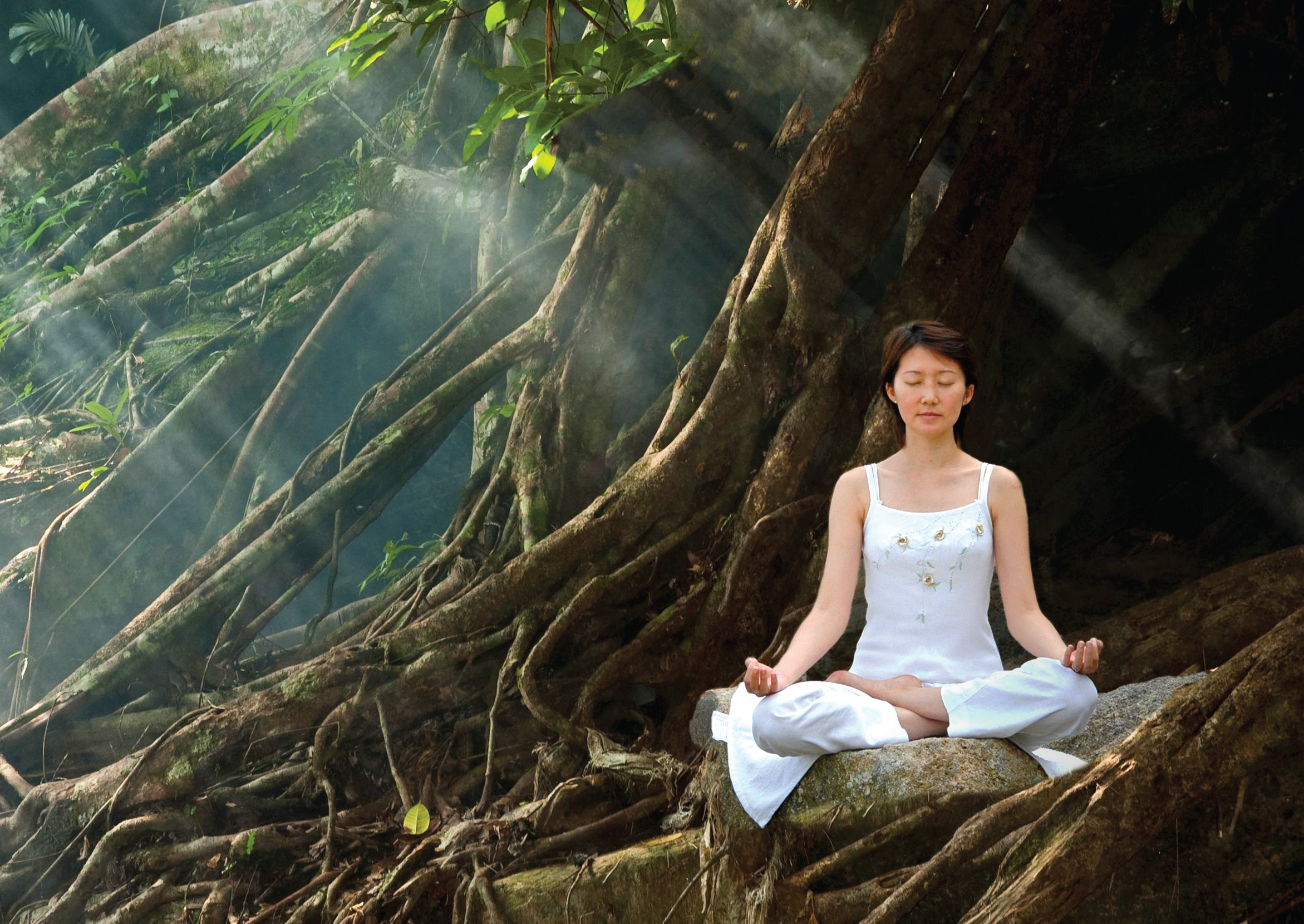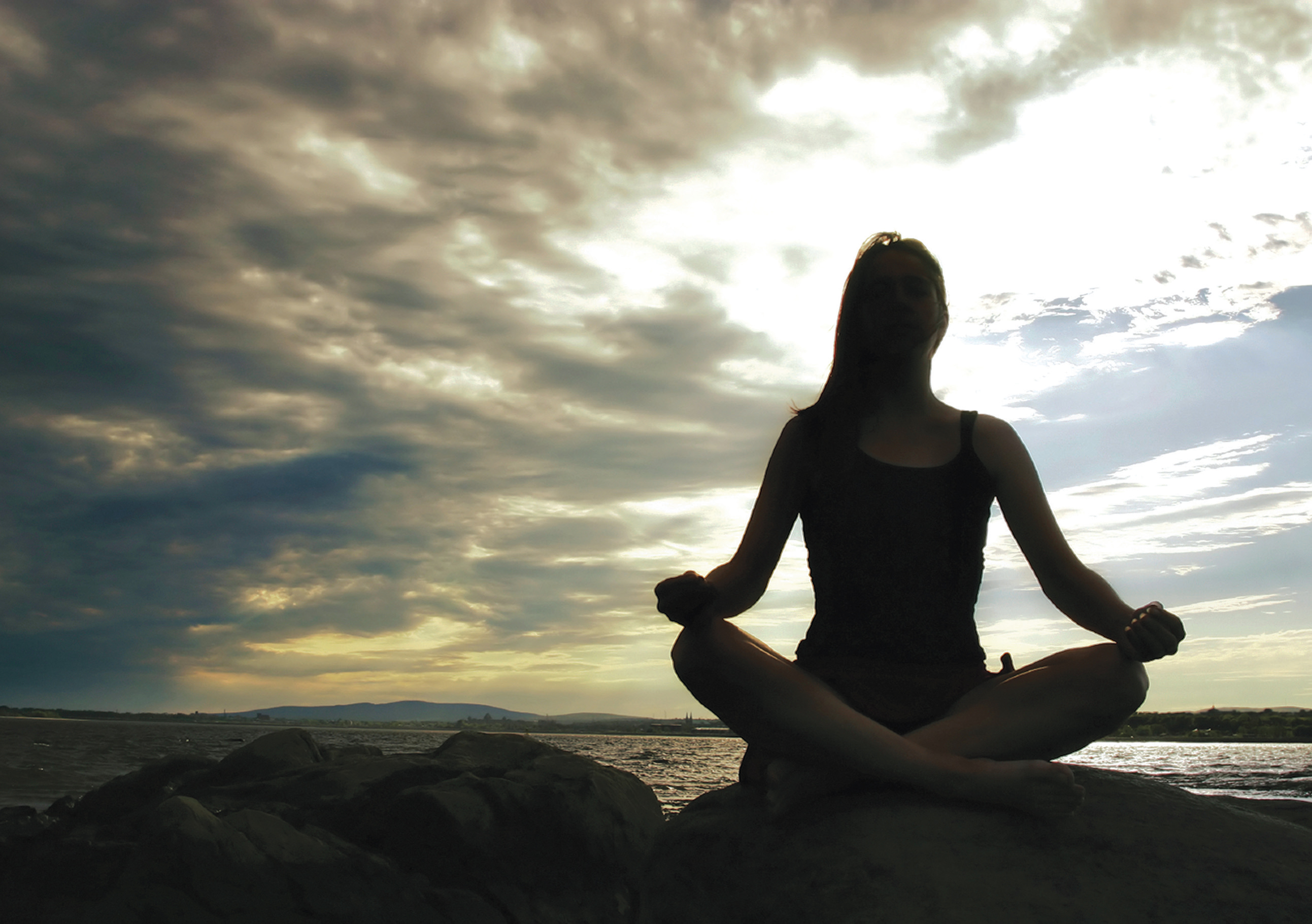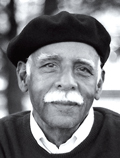Teresa de Cepeda y Ahumada, later to become loved around the world as Saint Teresa of Jesus, grew up as a beautiful, high-spirited girl from one of the most distinguished families in the sixteenth-century Spanish town of Avila. With charm, intelligence, keen artistic sensibilities, and a saving dose of common sense, she seemed to have the world at her feet. Yet while still in her teens, this passionate young woman had already begun to find the attractions of worldly life too small to satisfy her. She felt their pull – would be torn in two by it, in fact, for more than twenty years. But nothing could silence a much deeper appeal within her, a call to a far higher destiny.
Some dim awareness of an infinite promise deep within her must have prompted her to turn inward. In her writings, Teresa describes candidly what was taking place inside. “All the things of God gave me great pleasure,” she recalls, “but I was held captive by the things of this world.” Yet the inward pull would not let her go: Reason tells the soul how mistaken it is in thinking that all these earthly things are of the slightest value by comparison with what it is seeking. A little recollection reminds it that all these things come to an end. And faith instructs it in what the soul must do to find satisfaction. . .
Young Teresa had seen what life offers on the surface, and it was not enough. She longed for much greater challenges, deeper awareness, something more lasting than this world of change. “There is no joy in the finite,” the Upanishads say. “There is joy only in the Infinite.” Teresa’s soul yearned for the Infinite, and nothing less would satisfy her.
Teresa of Avila is so appealing a figure, so human and yet so inspiring, that we naturally want to know her secret. How can we be like her? What enabled her to turn herself inward, heart and soul? Is it something that people like you and me can follow?
As it happens, Teresa did leave us her “secret.” In her autobiography, she stresses over and over the one quality she found vital: determinación – determination, decision, will. “Those who have this determination,” she declares, “have nothing to fear.”
Determination? Is that all? Surely, we think, some loftier, finer qualities must come before this mundane one. But then we reflect on our own experience. In any walk of life – arts, sciences, sports, entertainment – wherever excellence is achieved, there is one quality we almost always find: the sheer will to overreach oneself, to keep going whatever the odds until the goal is attained. Saint Teresa is simply reminding us that we need this same quality to reach an infinite goal. The same determination with which we pursue passing, personal satisfactions can be used for spiritual growth.
If we find that we are not making the kind of progress we would like on the spiritual path, Teresa is suggesting, the reason may be simply that we are not trying our hardest. We may have all kinds of other reasons, but often the problem is simple lack of determination. often notice delivery trucks with a sign on the back: “Frequent Stops.” One I used to see regularly in Berkeley was Danny’s Diner, which stopped so frequently that it never got more than a block from campus. This can happen in meditation too. There are people who meditate for a few days and then stop to experiment with some old indulgence. When they take up meditation again, their mind is even more rebellious and they fall asleep. So they stop once more. Their mind and senses are offering resistance, meditation is no fun, so they say, “Why not go in for a few healthy distractions?” This approach will take us no farther than Danny’s.
Many have begun,” Teresa observes, “but never persevere to the end. . . What His Majesty wants is our acts of will.” In Sanskrit we have a word which means “heroes at the beginning”: people who take up a job with a fanfare of trumpets but soon find that their enthusiasm has tiptoed down the back stair. Those who go far in meditation are the ones who keep on plugging. They may not be very spectacular; they may never hear a trumpet. But they keep on trying day in and day out, giving their best in every situation and relationship, never giving up. Such people are bound to reach their goal.
The first challenge to determination, of course, comes up every day. “Shall I meditate today at my regular time and place, for the full length of time? Or shall I fudge a little?” So many things can come in the way!
This one little question is so common, so insidious, that I want to stress just how important it is. Nothing you can do will strengthen your determination more than the regular practice of meditation: at the same time, and for the full length of time, every single day.
No one finds this easy or convenient. Everybody faces obstacles: you are traveling, you have a cold, your baby starts crying, you get interrupted by a phone call, you have to wait for a call that never comes . . . The list goes on forever. Some obstacles, I agree, cannot be removed until you change your job circumstances. But most can be dealt with through surprisingly simple measures which never occur to us: unplugging the phone, for example, or getting up early enough to let the baby sleep. Just by meditating regularly, you are deepening your determination immeasurably.
On the other hand, if you neglect your meditation, you can be sure that your mind will take full advantage of it on the following morning. In the Indian spiritual tradition, the saying goes, “If you miss one morning’s meditation, it takes seven mornings to make it up.” If you miss seven mornings – well, you can figure it out.
“There is no joy in the finite,” the Upanishads say. “There is joy only in the Infinite.”
One of the first things I learned about training the mind was to put meditation first always, whatever obstacles or temptations come in the way. When I came to this country, almost thirty years ago, I was on a ship for nearly a full month. The Peninsular and Oriental steamship company apparently never felt motivated to provide meditation facilities, and the cabin I shared with other Fulbright scholars would not serve. Among other things, the only fresh air it ever got was supplied by a little tube not much bigger than my thumb.
One of my friends saw the expression on my face and asked what was wrong. I tried to explain, as best I could, about needing to get my full quota of meditation morning and evening. He brightened helpfully. “See here, old boy,” he said, “you’ve been in harness such a long time now. Why not take advantage of the circumstances and enjoy a well-earned vacation? Everybody enjoys a holiday, and here you are getting one free. Why keep talking about meditation? You can do all that when we get to America, where you will need it.”
“I want to be on vacation always,” I objected. “That’s just why I never miss my meditation.”
The next morning I got up very early and went exploring. Soon I discovered the sports deck, absolutely deserted in the early hours of the morning. I wrapped my blanket around my shoulders, sat down, and closed my eyes, and once I began going through the second chapter of the Bhagavad Gita I forgot all about where I was. When I finally opened my eyes, I found I had been amusing a small crowd of bystanders. I let them laugh; after all, there is not much to do on board a ship, and I didn’t mind having a reputation for being a colorful character. People laughed, but gradually they came to respect me. “He’s a really earnest chap,” they would say, “whatever that Indian thing is that he’s doing.”
That was not the end, either. The tests went on. Eventually our ship reached Port Said, on the Suez Canal. Egypt was not only the land of the pharaohs to me. For hundreds of years it had been a great center of Islamic civilization, and President Nasser had attracted interest throughout the newly independent states of the Third World.
The Fulbright commission probably did not share our enthusiasm about Nasser, but it had made extensive arrangements to take us scholars to Cairo, several hours’ journey across the desert, and to house us there and show us around.
This news was greeted with great joy. My friends, knowing how keen I was on seeing Cairo at last, brought me the itinerary as soon as it was announced.
“It will be wonderful,” I agreed when I saw the schedule. “But I won’t be able to come with you.”
They were shocked.
“Not come with us? Don’t you want to see the Nile, the Pyramids, the mosques, the bazaar? Haven’t you been telling us about Al-Azhar University, almost a thousand years old?”
I said simply, “You know how much I want to see them.”
“You may never get a chance again.”
“I expect I won’t. Certainly not as the guest of the government.”
“Well, then?”
“If I follow that schedule,” I explained, “I won’t be able to maintain my meditation.” And that, they knew, was that. I never have seen Cairo. But I have seen the Self.
To keep going forward, we have to go on making our best effort to keep calm and kind throughout the day.

So be regular in your meditation, be systematic in following the instructions, and try to sustain your enthusiasm no matter how you feel. Every morning when you sit down for meditation, renew your determination. If you believe in a personal God, ask for the help of Sri Krishna or Jesus or the Divine Mother to make this decision unbreakable. If you do not believe in a personal God, ask for help from your own deeper Self, the Atman. Either way, it is important to remember that you are appealing to a power deep within you, not to anyone outside.
Meditation, of course, is only part of the effort. I cannot say too often that everything we do throughout the day has a direct effect on the mind. I feel perplexed when I see someone put in sincere effort in meditation and then proceed to quarrel at breakfast, stomp out of the office in a huff at lunch, and not go home at all for dinner. I say bluntly: “You have undone all that you did so carefully in meditation.” To keep going forward, we have to go on making our best effort to keep calm and kind throughout the day.
After dinner, too, even if the day has been rough, it does very little good to try to escape to the bowling alley or the dance hall. The desire to escape is natural enough, but there is really no place to run – and you would only be making the next day a little harder, by undoing a day’s work of training. Instead, try to spend time with family or friends, building closer relationships, helping to lighten the burden of their day.
All this requires endless determination, as I am sure you are already aware. The first stages of meditation are rough going, and the only consolation I can offer is that below the surface of consciousness, the going gets even rougher. As you enter the immense, uncharted realm called the unconscious, there are so many imponderables you have to deal with, so many indecipherable scripts you have to learn to read. Even the most daring intellect looks around in vain for familiar landmarks and throws up its hands. “I don’t understand this! There is nothing here that I can grasp, touch, see, or think about. I don’t know what to do.” The will lies down and goes to sleep, and every morning you have to try to rouse it again. This is a long, tough, terribly challenging battle.
But the rewards are infinite. If you read the annals of the great mystics, they seem to be having the time of their lives – dealing with intangibles, breaking codes that have never been broken, reading scripts that have never been made out. Every day there is a miracle in meditation. You have to fight against an enemy you cannot see, in a battle in which the lines cannot even be drawn. Yet you know you are learning to face these challenges; you know you are moving forward. That is all the inspiration you need, all the thrill you could ever hope to find. Throughout the day you do everything possible to clear your path into the unknown. And when you go to bed at night, you have a sense of having really lived – an awareness that no achievement in the external world can give.
I want you to know that this is just how I learned too. When I took to meditation, I was not living in seclusion in a cave on the Himalayas. I a busy professor on a large campus in India, deeply interested in my students and in my subject, which was literature. In addition, I wrote a regular column for a national newspaper and spoke to sizable audiences over All-India Radio. I mention this simply to show that you do not have to drop out of society and go into hiding to pursue your spiritual goals. You do not have to slough your responsibilities so you can learn to meditate at your leisure – in fact, meditation is going to make you even more responsible. Meditation is a skill for living. You can draw on its benefits wherever you are – with your family, with your friends, on your campus, in your office, at your clinic, in your home. You can drive a taxi and still explore Infinity.
In the perspective of mysticism, most of us are still playing in the world as if we were children in a giant sandbox.

Most of the difficulties people have in personal relations, at home and at work, arise from one ridiculous attitude: “If you give this much, that’s all I’m going to give. If you are going to try to grab that, I’m going to try to grab it too.” This peculiar stance is written into our human conditioning; that is why so much determination is required to change it. But living in freedom requires a complete reversal of perspective. Instead of asking “How much can I get?” we have to learn to ask, “How much can I give?”
This is far more subtle than it may sound. Most of us need a long, long time to learn to ask this question in every aspect of our lives, even in our thoughts; it entails a complete turnabout in our direction of living. But that simple turnabout transforms our vision. The entire world looks different. Instead of feeling helpless in a world of hostile forces, you live in a world of hope, equal to any challenge; and by that transformation, you help everybody around you.
In the perspective of mysticism, most of us are still playing in the world as if we were children in a giant sandbox. We have our rattles, we hold on tightly to our Popsicles; for the vast majority of us, most of life is spent with toys. Figures like Sri Krishna, Christ, and the Buddha come to the edge of the sandbox and remind us gently, “Look, your hair is turning gray. Do you want to play here forever? There are vast worlds to be discovered.” But often we reply, in effect, “Right, Lord. Just let me finish this one sand castle . . .”
I feel very happy now to see so many high school and college students learning to meditate. They are extraordinarily fortunate, for they are getting out of the sandbox early in life. If we keep playing with pleasures and possessions for decades, before we realize it the sandbox becomes our universe. Then we have no thought for what we really are, who is within us, what our destiny is, whether life has any goal.
If this outlook sounds bleak, it is actually full of promise. It implies that we can always grow up. I am an inveterate optimist, and not of the naive variety either. If we take this compassionate view of human motivations, we won’t consider the world around us hopeless. Throwing away our toys and growing up requires a great deal of determined effort, yet none of us has any reason to give up hope. That core of Infinity is still there, right within us, shining away just as brightly no matter how hard we try to look the other way.
Saint Teresa, again, puts it very personally: Even when we are engaged in our worldly pastimes and businesses and pleasures and hagglings, this Lord of ours is so anxious that we should desire him and strive after his companionship that he calls us ceaselessly, time after time, to approach him . . . for His Majesty is quite prepared to wait even for years, especially when he sees we are persevering and have good desires. This is the most necessary thing here; if we have this, we cannot fail to gain greatly.
It should kindle our determination all the more to think how boundless his love for us must be, so anxious is he to draw us closer to him no matter how much we may tarry.
Reprinted with permission from Conquest of Mind: Take Charge of Your Thoughts and Reshape Your Life Through Meditation, Nilgiri Press. © 2010, The Blue Mountain Center of Meditation, CA
 Eknath Easwaran (1910-1999) is respected around the world as the originator of passage meditation and an authentic guide to timeless wisdom. An Indian professor of English literature and a writer and speaker, he came to the U.S. in 1959 and founded the Blue Mountain Center of Meditation in 1961. The centre carries on his work today through publications and retreats. bmcm.org
Eknath Easwaran (1910-1999) is respected around the world as the originator of passage meditation and an authentic guide to timeless wisdom. An Indian professor of English literature and a writer and speaker, he came to the U.S. in 1959 and founded the Blue Mountain Center of Meditation in 1961. The centre carries on his work today through publications and retreats. bmcm.org







